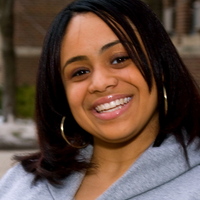 A new study by researchers at North Carolina State University and the University of Chicago has found that Black teens and young adults who experience racial discrimination are more likely to engage in social and political activism on issues that are important to the African American community.
A new study by researchers at North Carolina State University and the University of Chicago has found that Black teens and young adults who experience racial discrimination are more likely to engage in social and political activism on issues that are important to the African American community.
The findings highlight the importance of four variables; two types of racial discrimination and two aspects of racial identity. The two types of discrimination are institutional racial discrimination, such as White students receiving preferential treatment in schools, and cultural racial discrimination, such as White criminals being portrayed more sympathetically than Black criminals in news media. The two aspects of racial identity are public regard, which is how an individual feels the general public regards Black people in the United States, and nationalism, which refers to how important an individual feels it is to support and cultivate Black cultural institutions.
To explore these variables, the researchers surveyed 888 young Black adults , ages 15 to 29, across the country. The participants were asked a series of questions aimed at gauging their experiences with both types of discrimination, as well as assessing both aspects of their racial identity. They were also asked about how likely there were to engage in a range of activism-related activities specific to the Black community. The activities ranged from “low risk,” such as signing a petition, to “high risk,” such as participating in a protest where one may be arrested.
The results showed that experiencing either form of discrimination increased the likelihood of a participant’s future activism for Black related issues, but in different ways. Those that experienced more cultural racial discrimination, were more likely to engage in low-risk activism, but were less likely to engage in high-risk activism. For those who experienced more institutional racism, their likelihood of participating in high-risk activism increased. However, those who had positive public regard were not more open to high-risk activism, regardless of their experience with institutional discrimination. Additionally, high reports of institutional discrimination correlated with low chances of future low-risk activism.
“The bottom line is that the U.S. is deeply polarized politically and socially,” said first author Dr. Elan Hope. “It is important for young people to be engaged and to have the agency to speak on their own behalf. We also know that discrimination has very real adverse effects on the health and well-being of those who experience discrimination. Studies like this one can inform efforts aimed at providing young people with the resources they need to channel their energy and work toward a more just society.”
Dr. Hope is an assistant professor of psychology at North Carolina State University. She holds a bachelor’s degree in psychology from Smith College in Northampton, Massachusetts, and a Ph.D. in education and psychology from the University of Michigan.
The full study, “Engaged Against the Machine: Institutional and Cultural Racial Discrimination and Racial Identity as Predictors of Activism Orientation Among Black Youth,” was published in the American Journal of Community Psychology. It may be accessed here.












